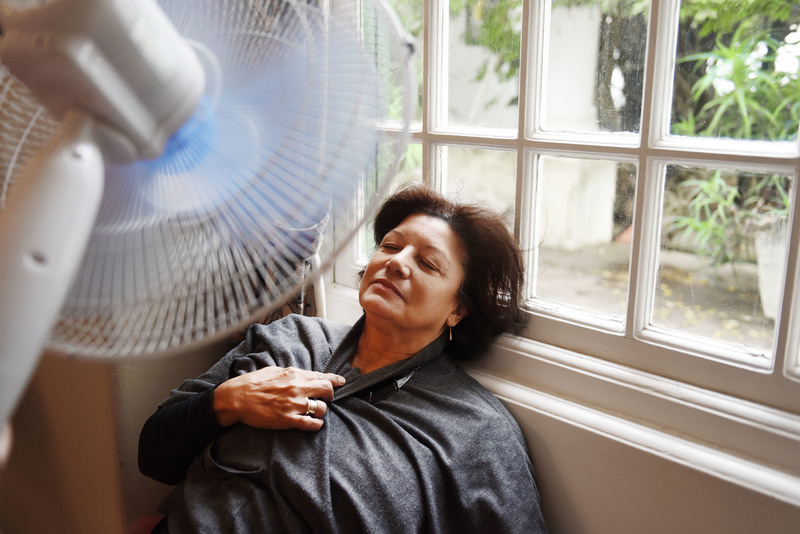New drug reduces hot flushes
11 May 2017 | Story Supplied. Photo Robyn Walker.
A new drug that reduces post-menopausal hot flushes, which affect 60 to 80% of women, says a new study by the University of Edinburgh’s Dr Karolina Skorupskaite and co-authors in the current issue of Neuroendocrinology. The research shows that the drug may also reduce cardiovascular disease.
The study describes the novel effect of an antagonist of the brain hormone, neurokinin B, on post-menopausal hot flushes, which debilitate so many women.
Co-author of the study, Professor Bob Millar, director of the Centre for Neuroendocrinology at the University of Pretoria and senior research fellow at UCT’s Institute of Infectious Disease and Molecular Medicine, remarks, “The main treatment for the debilitating condition of hot flushes is oestrogen replacement. But many women are worried about increasing the risk of breast cancer and stroke, and oestrogen can’t be taken by women who have had breast cancer. So, this new treatment is a major breakthrough.”
The study found that all eight post-menopausal women with symptomatic flushes reported a reduction in both the frequency and severity of hot flushes while taking the neurokinin B antagonist, and, importantly, it also reduced the interference of flushes with daily activities.
The response to the antagonist was also very rapid, said Millar, with a significant fall in both night- and daytime symptoms after only two days of treatment, whereas oestrogen generally takes several weeks to become effective.
Before this discovery, neurokinin B was shown to be increased in the brains of post-menopausal women and hot flushes were thought to be linked to this increase in neurokinin B. The current studies showing that the neurokinin B antagonist rapidly ameliorates hot flushes is a significant breakthrough, potentially offering a new treatment, said Millar.
 This work is licensed under a Creative Commons Attribution-NoDerivatives 4.0 International License.
This work is licensed under a Creative Commons Attribution-NoDerivatives 4.0 International License.
Please view the republishing articles page for more information.










